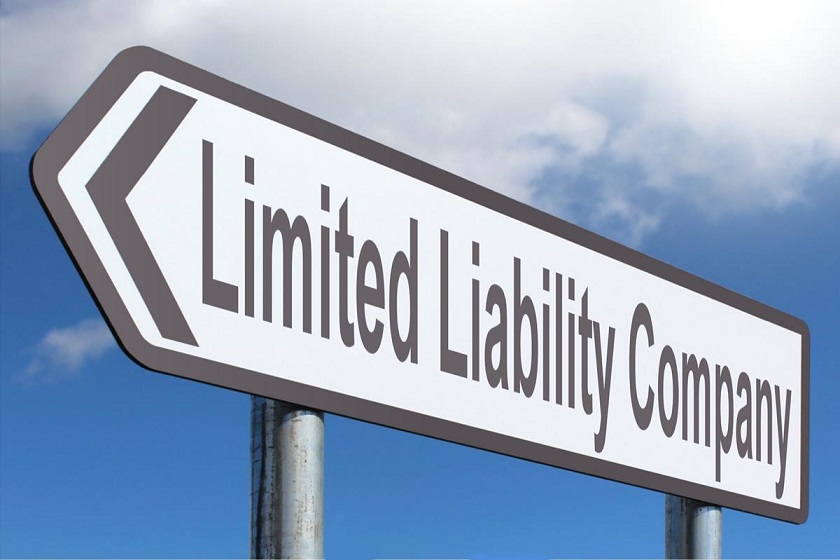A Few Considerations for Property Investors

A limited liability company, or LLC, is easily formed under state law. Its owners are technically called members, and one person can run an LLC as a sole member. If you plan to purchase investment properties, you might be thinking of an LLC as a shield, protecting your personal assets and income from legal actions.
Liability factors aside, the LLC has several attractive features for investor-owners:
- Forming an LLC promotes professional best practices, such as keeping business accounts and credit distinct from personal accounts. The owner of an LLC can open a business bank account to pay bills and receive income from and to the LLC.
- The LLC is generally simpler than other business structures for tax purposes.
- Most states allow LLCs to convey property to beneficiaries privately, without probate. (In this sense, an LLC and a trust have a similar effect.)
- An LLC protects owner privacy, by holding a business out in the company’s name.
By the use of a deed transfer, real estate can be purchased by or placed into an LLC.
Holding Real Estate: Trust Versus LLC
You might hold real estate in your own name, in the name of a trust, or under a business name. While a trust is a popular vehicle for holding and transferring a primary residence or a second home, an LLC is often used by the investor-owner who manages multi-unit properties for an income flow.
Creating a Trust
A trust is designed to conserve value for beneficiaries. With a trust, you can pass a home on after death without the months-long probate process that would burden a residence titled in your individual name. Trusts can also offer some liability protection, although what’s offered depends on the type used. Irrevocable trusts, including domestic asset protection trusts, have more power than revocable trusts to protect home equity from potential creditors.
Trusts are privately formed. Yet they exist under, and must follow, the state’s law on trusts. Most trusts have to pay a higher tax rate on income that’s kept in the trust than an LLC would pay.
Forming an LLC
LLCs involve an application and approval by the state to name and establish the business. The formation process is designed to be quick and straightforward, and requires a modest fee. Your application can be done online, and the paperwork from the state will arrive by mail.
While the LLC is specially created as a business model, the founder can manage the company as sole member and can opt to be taxed with an individual social security number, at individual tax rates. This is pass-through taxation: you’re running a business, but it’s taxed like a partnership or sole proprietorship would be, so the owner does not pay at the higher, corporate tax levels. At essence, an LLC is a hybrid of the corporate and partnership business models. It blends certain corporate elements (protections against liability) with certain elements of the partnership model (tax advantages).
Yet another advantage of the LLC is that state and federal estate taxes do not apply. But if you form an LLC, your interest in it is part of your taxable estate and subject to probate. You always have the option to dissolve the LLC and take full ownership of any debt-free assets.
The LLC for Airbnb and Vacation Rentals
With an app from Airbnb, VRBO, or another rental-by-owner platform, homeowners can earn income from their houses. Some owners of vacation homes hold them in LLCs, as rentals can create liability risks.
The LLC is not a foolproof shield. Anyone who sets up and draws income through an LLC can be personally liable for negligence in tort cases. And an LLC owner must follow the state law pertaining to this business form. Otherwise, courts will look through the LLC to reach the personal assets of its owner.
☛ Homeowners thinking of renting out their homes be familiar with local laws, policies and attitudes. Find out more about Airbnb: where it’s hot and where’s it’s not.
Your decision to have an LLC to hold a home you use for rental income depends, in part, on what a mortgage lender requires in a given situation. It may also depend on insurance costs, which can be far higher for houses held by companies than homes in individual owners’ names.
Liability Protections — To Some Extent
All states have LLC laws outlining the extent of protection this structure affords its members if the business is sued. Also depending on state law, it can be possible to set up an LLC so its members’ personal creditors cannot wrest control over the LLC to recoup their funds. Speak with a lawyer in your state for case-specific guidance.
Because LLCs operating in multiple states work under multiple legal frameworks, some investor-owners establish series LLCs for multiple investment properties. This confines potential liability to each property, so the owner’s business interests as a whole aren’t impacted by legal action in one location.
Overall, the liability protections you receive with an LLC are limited, due to the nature of a pass-through entity. Take some time to speak with your home insurer about an umbrella insurance policy that could offer more specific protections for your assets as an investor-owner.
Pro tip: It’s unwise to rely on the protections of a limited liability company in a personal bankruptcy case. Especially if the LLC is run by a sole member, these protections may not hold weight in a bankruptcy court.
Best Practices to Keep in Mind
Consider the following points if you’re thinking of forming an LLC to hold your real estate:
Get the Mortgage Lender on Board
Before moving property titled in your name into an LLC, be sure your mortgage due date won’t be accelerated. Learn what steps to take so the correct name is on the mortgage. As always, speak with your mortgage servicer before doing anything that changes your title. And be sure your lender knows what type of deed you will use to transfer property into your business. Using a general or special warranty deed is best for maintaining a clear chain of title.
Keep Your Title Insurance in Place
On a related note, be sure your insurance policy has the correctly named beneficiary. If you are transferring your title from personal ownership into an LLC, find out if the transfer could trigger coverage problems with your owner’s policy issuer. You might need an endorsement to continue coverage for the LLC.
Let’s break this down a bit further. Investors might purchase a property in their personal capacity in order to qualify for a residential loan, then move the property into an LLC. If you do this, are you still the beneficiary? If you’re the sole member of your LLC, or you and your spouse are the principals of the LLC, then coverage likely remains intact. Check before creating your deed.
Create a Valid Deed
Your name, as the deed grantor, must match the way it appears on your existing deed, and the correct legal name of the LLC must be shown as grantee. Check with your county recorder of deeds on the signature and notarization requirements, and to know what minimum consideration must be shown on the deed to create a valid transfer. Record your deed with the county.
Pro tip: A deed placing property into a series LLC, in order to keep its particular protection apart from your other properties, should name the specific series for the particular property — such as Perfect Properties LLC Series B.
Avoid Comingling
Apply online with the IRS for a tax ID number, so you can open a business bank account in the name of the LLC. This will simplify your tax preparation, and keep business income and expenses in one account, distinct from your personal accounts. Draft or amend your lease documents to show rent payable to the LLC.
If an LLC is sued, evidence that its members mixed personal and business money will not look good. The court is even more likely in such cases to deem the business its members’ alter ego, ignore the LLC’s liability shield, and allow recoveries against the members’ personal property.
Paying Taxes as the Owner of an LLC

Typically, the IRS deems an LLC owned by a sole member a disregarded entity, so the owner files Form 1040, reporting income and expenditures on Schedule C.
A multiple-member LLC, if not electing to be taxed as a corporation, files a Form 1065 partnership tax return, with the members’ profits and losses divided up using Schedule K-1.
States apply various approaches when taxing LLCs and their members; your local tax accountant can provide guidance.
Summing It Up
While a trust is a top choice for holding and passing homes, an LLC is more common for owners of rental properties. Keeping investment property in an LLC makes sense for several reasons beyond legal risk reduction. It conveys a professional image, and is quick and simple to form.
A property owner should consult with local tax and real estate law experts to determine the best way to structure the business. It’s also critical to keep loan and title insurance providers in the loop. An accountant can provide guidance for handling startup costs and later purchases for optimal tax treatment.
Banner image by Nick Youngson (Alpha Stock Images, CC BY-SA 3.0; sourced via Picpedia); inline image by Kelly Sikkema, via Unsplash.
